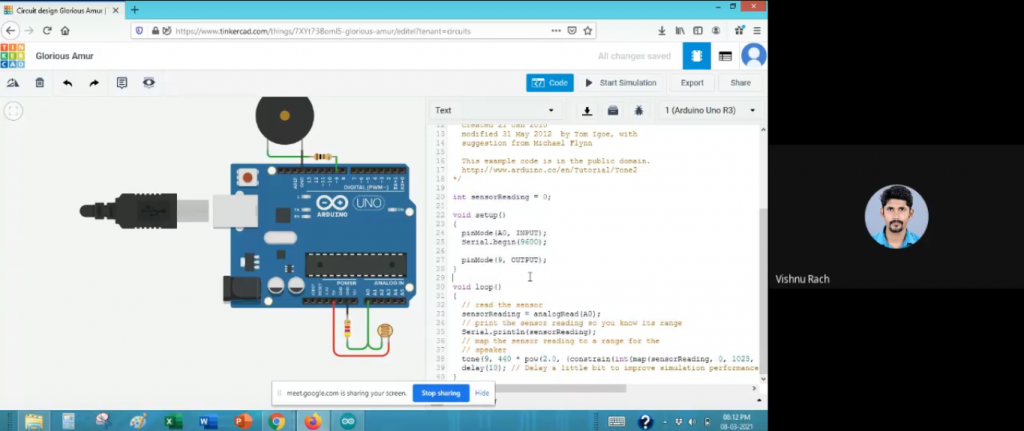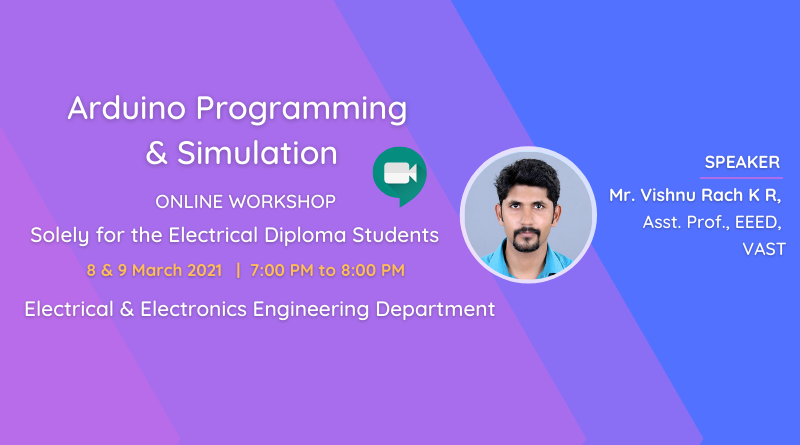EEE Dept organises workshop on Arduino for Polytechnic College Students
A workshop on Arduino Programming was conducted by the EEE Dept of Vidya in the online mode exclusively for the Electrical Engineering Diploma students of Polytechnic Colleges in Kerala during 8 – 9 March 2020. The focus of the workshop was to impart programming and interfacing skills using Arduino board. As the number of registrations exceeded the expectations, it was decided to conduct the workshop in two different slots. The workshop for the first slot of 71 students of MTI Thrissur and St Marys Polytechnic College, Palakkad was on 8 March 2021. The second slot for 69 students of TPT College, Alagappa Nagar and Sree Rama Polytechnic College, Triprayar and SSM Polytechnic College, Thiroor was on 9 March 2021.
The workshop began with Dr Mary P Varghese (Associate Professor & Head-in-charge, EEE Dept) welcoming the participants. Dr Sudha Balagopalan (Dean, Academics) presided over the function and Mr Krishnakumar M (AP, EEE Dept) and Ms Akhila R (AP, EEE Dept) proposed the vote of thanks.
After the formal inauguration, the students were introduced to different development boards of Arduino and also the development environment for Arduino. Mr Vishnu Rach K R (AP, EEE Dept) led both the sessions.

About ArduinoArduino is an open-source electronics platform based on easy-to-use hardware and software. Arduino boards are able to read inputs – light on a sensor, a finger on a button, or a Twitter message – and turn it into an output – activating a motor, turning on an LED, publishing something online.We can tell the board what to do by sending a set of instructions to the microcontroller on the board. To do so we use the Arduino programming language (based on Wiring), and the Arduino Software (IDE), based on Processing. |
Topics coveredIn the first session, students got familiarized with various development boards of Arduino and learnt the development environment for Arduino. Working with Arduino I/O pin was taught initially. Following are some of the topics covered in detail:
|

